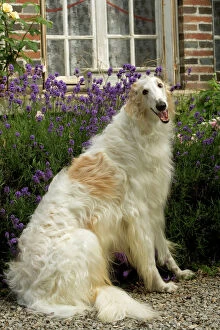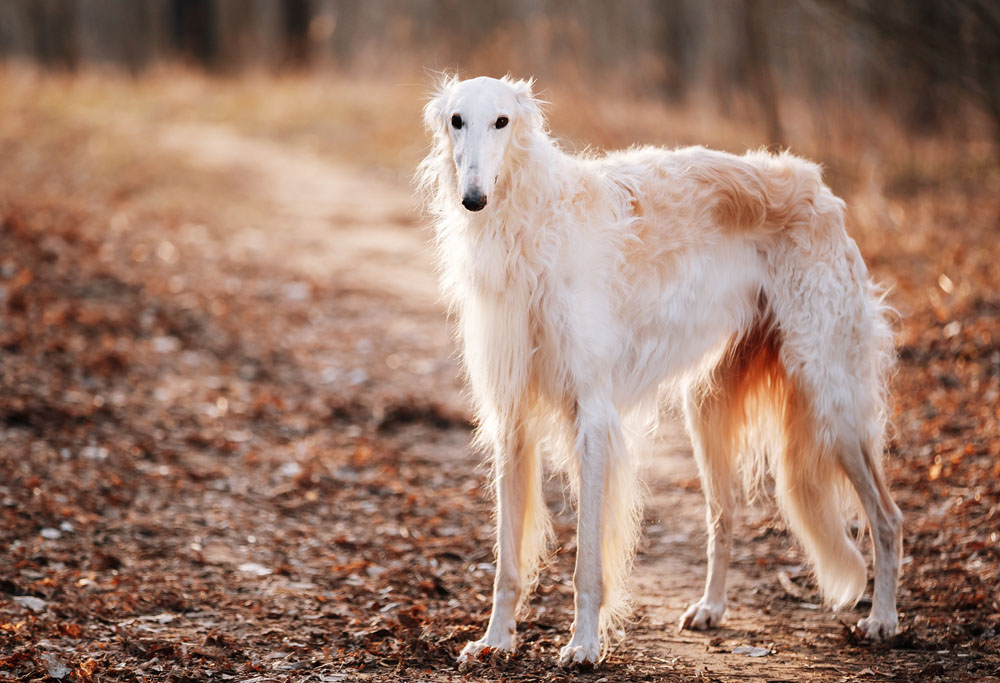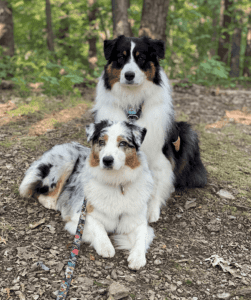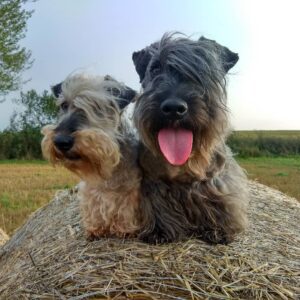Key Takeaways
- Borzoi, also known as Russian Wolfhounds, are rare due to their historical ties and specialized breeding.
- The cost of adopting a Borzoi ranges from $500 to $2,000, considering adoption fees and initial care costs.
- Borzoi typically live between 9 to 14 years, with their lifespan influenced by genetics and care.
- These dogs are known for their affectionate and gentle nature, making them suitable family pets.
- Prospective owners should be prepared for their unique needs, including exercise, grooming, and training.
Exploring Borzoi Russian Wolfhound Adoption
Adopting a Borzoi can be a rewarding experience for those who appreciate their unique charm and elegance. These majestic dogs, known for their striking appearance and gentle demeanor, can bring immense joy to the right family. However, before diving into adoption, it’s essential to understand the breed’s specific needs and characteristics.

“DOG Borzoi / Russian Wolfhound Our …” from www.ardeaprints.com and used with no modifications.
Why Borzois Are Rare
Borzoi dogs are considered rare, primarily due to their historical background and breeding specificity. Originating in Russia, they were once the prized companions of nobility, bred for their speed and grace to hunt wolves. This selective breeding for specific traits has kept their population relatively limited, contributing to their rarity today.
Costs Involved in Adoption
Adopting a Borzoi can be a significant financial commitment. The initial adoption fees generally range from $500 to $2,000, depending on the dog’s age, pedigree, and the reputation of the breeder or rescue organization. Beyond the adoption fee, potential owners should also consider the costs of initial veterinary care, including vaccinations, spaying or neutering, and a health check-up, which can add another $200 to $500.
Understanding Their Longevity
Borzoi typically have a lifespan of 9 to 14 years, which is relatively standard for large dog breeds. Their longevity can be influenced by several factors, including genetics, diet, exercise, and overall healthcare. Ensuring a Borzoi receives regular veterinary check-ups and a balanced diet is crucial to maximizing their lifespan.
- Regular vet visits to monitor health and catch any issues early.
- A nutritious diet tailored to their size and activity level.
- Adequate exercise to maintain physical health and mental stimulation.
Why They May Have a Shorter Life Span
- Genetic predispositions to certain health conditions.
- Large breed dogs generally have shorter lifespans than smaller breeds.
- Potential for joint issues due to their size and activity level.
While Borzoi are generally healthy dogs, they can be prone to certain genetic health issues, such as hip dysplasia and heart conditions. Regular health screenings and a proactive approach to veterinary care can help mitigate these risks and contribute to a longer, healthier life. For more insights on health issues in pets, you can explore common health issues in pets.
Daily Life with a Borzoi
Living with a Borzoi is a unique experience that combines elegance with a need for activity. These dogs thrive in environments where they can stretch their legs and engage in regular physical activities. They are known for their quiet, calm demeanor indoors, making them excellent companions for those who appreciate tranquility.
Borzoi are gentle giants who love lounging around the house, but don’t be fooled by their laid-back nature. They require a certain amount of daily exercise to keep them happy and healthy. Without it, they can become bored and potentially destructive.
- Daily walks or runs are essential to meet their energy needs.
- Access to a secure, fenced area for off-leash play is ideal.
- Interactive playtime with toys can stimulate their minds.
These dogs enjoy spending time with their families and can adapt well to various living situations, provided they get the exercise they need. However, they do best in homes where they can have some space to roam freely.
Exercise and Activity Requirements
Borzoi require a fair amount of exercise to stay fit and content. While they enjoy lounging, they also need opportunities to run and stretch their legs, given their history as sighthounds. Ideally, Borzoi should engage in at least one hour of physical activity each day. This can include walks, runs, or play sessions in a safe, enclosed area.
Grooming and Maintenance Needs
The Borzoi’s luxurious coat is one of its most striking features, but it also requires regular grooming to maintain its beauty and health. Their long, silky fur can easily become tangled and matted if not brushed regularly. A thorough brushing a few times a week is recommended to prevent mats and keep their coat looking its best.
Besides brushing, Borzoi need routine grooming tasks such as nail trimming, ear cleaning, and dental care. These tasks help maintain their overall health and prevent potential issues from arising. Regular grooming sessions also provide an excellent opportunity to check for any skin issues or unusual lumps. For those considering adopting a Borzoi, understanding the pet adoption myths can be beneficial.
Bathing should be done as needed, depending on how dirty they get from their outdoor adventures. However, frequent bathing is not necessary and can strip the coat of its natural oils, leading to dry skin. For those interested in small dog breeds that don’t shed, this can be an important consideration.
“The Borzoi’s coat requires dedication to grooming, but the result is a stunning, healthy appearance that reflects their noble heritage.”
Balancing Their Independence and Social Needs
Borzoi are known for their independent nature, a trait that can sometimes be mistaken for aloofness. However, they are incredibly loyal and form strong bonds with their families. It’s important to strike a balance between giving them space to be independent and ensuring they receive enough social interaction.
These dogs do well in homes where they can spend time with their families but also have opportunities for alone time. They appreciate a quiet environment where they can relax and enjoy their own company, but they also love to participate in family activities and outings.
Training Borzoi Russian Wolfhounds
Training a Borzoi can be a rewarding experience, though it does come with its challenges. These dogs are intelligent and capable learners, but their independent streak means they may not always be eager to please. Patience and consistency are key to successful training.
It’s essential to start training early, using positive reinforcement techniques. Borzoi respond well to treats, praise, and playtime as rewards for good behavior. Establishing a strong foundation of basic obedience commands will help manage their behavior as they grow.
Basic Training Tips
When training a Borzoi, keep sessions short and engaging. Long training sessions can lead to boredom and disinterest. Focus on one command at a time, ensuring the dog fully understands before moving on to the next. Consistency is crucial, so practice commands regularly and reinforce them in different environments.
Socialization is another important aspect of training. Exposing your Borzoi to various people, animals, and environments from a young age will help them develop into well-rounded adults. This exposure can prevent shyness and fearfulness, which can sometimes be seen in this breed.
Challenges in Training
One of the main challenges in training a Borzoi is their independent nature. They were bred to think for themselves while hunting, which can sometimes translate to stubbornness during training sessions. It’s important not to become frustrated or resort to harsh training methods, as this can damage the trust between you and your dog.
Another challenge is their prey drive, which can be strong due to their history as hunting dogs. This drive can make recall challenging, especially in environments with small animals. Training a reliable recall command is crucial for safety, and it may take extra time and patience.
Effective Training Techniques
Positive reinforcement is the most effective training technique for Borzoi. This involves rewarding desired behaviors with treats, praise, or play, making the training process enjoyable for both you and your dog. Avoid harsh corrections or punishment, as these can lead to fear and anxiety.
Incorporating fun and games into training can keep your Borzoi engaged and eager to learn. Use their natural instincts, such as chasing and retrieving, to create training games that challenge their minds and bodies. Always end training sessions on a positive note to keep your dog motivated for future sessions. If you’re considering adding a Borzoi to your family, you might want to explore the pet adoption journey to better understand the process from shelter to sofa.
Important Considerations Before Adoption
Before adopting a Borzoi, it’s crucial to evaluate your lifestyle and living situation to ensure you’re prepared for the responsibilities of owning this unique breed. Borzoi require time, space, and attention to thrive, and potential owners should be ready to meet these needs.
- Consider your activity level and whether you can provide the necessary exercise.
- Evaluate your living space to ensure it’s suitable for a large, active dog.
- Research the breed’s health concerns and be prepared for potential veterinary costs.
Borzoi can make wonderful companions for those who understand and appreciate their unique traits. However, they may not be the best fit for every family, particularly those with limited time or space. It’s essential to do thorough research and consider all aspects of ownership before making a decision. For more information, you can learn about how to support local pet rescue organizations.
Adopting a Borzoi is a long-term commitment that requires dedication and love. By understanding their needs and preparing accordingly, you can provide a happy, fulfilling life for your new canine companion.
Ideal Living Conditions
Borzoi thrive in homes where they have access to a safe, enclosed outdoor area for exercise and play. While they can adapt to apartment living, they require regular opportunities to run and stretch their legs. A home with a yard or nearby park is ideal for meeting their exercise needs.
These dogs prefer a calm, quiet environment where they can relax and enjoy their own space. They do well in homes where they can spend time with their families but also have opportunities for alone time. Borzoi are sensitive to loud noises and chaotic environments, so a peaceful home is best. For more tips on preparing your home, check out this rescue pet home preparation guide.
Compatibility with First-Time Dog Owners
First-time dog owners often wonder if a Borzoi is the right choice for them. While Borzoi are known for their gentle and affectionate nature, they do require a certain level of commitment and understanding of their unique needs. They can be suitable for first-time owners who are prepared to invest time in training and exercise.
It’s essential for new owners to educate themselves about the breed’s characteristics and requirements. Joining Borzoi clubs or online communities can provide valuable insights and support from experienced owners. Additionally, consulting with breeders or rescue organizations can help first-time owners make an informed decision.
Health Concerns and Regular Care
Borzoi, like many large breeds, can be prone to certain health issues. Common concerns include hip dysplasia, heart conditions, and bloat. Regular veterinary check-ups and a proactive approach to healthcare are crucial to ensuring a long and healthy life for your Borzoi.
Maintaining a healthy diet and providing regular exercise can help prevent obesity, which can exacerbate joint issues. Owners should also be aware of the signs of bloat, a life-threatening condition that requires immediate veterinary attention. Early detection and treatment of health issues can significantly improve the quality of life for your Borzoi.

“The Elegant Borzoi: A Glimpse into the …” from www.buddylifemagazine.com and used with no modifications.
Unique Physical Characteristics
The Borzoi’s appearance is both elegant and distinctive, with a long, narrow face and a graceful, athletic build. Their physical characteristics are a result of centuries of selective breeding for speed and agility, enabling them to excel as hunting dogs.
Their deep chest and long legs contribute to their ability to run at high speeds, while their narrow face aids in their aerodynamic efficiency. These features make them well-suited for the tasks they were originally bred for, such as chasing down game in open fields.
Reasons for Their Long Face and Nose
The Borzoi’s long face and nose are not just for show; they serve a practical purpose. This unique structure allows for better air intake during high-speed pursuits, enhancing their endurance and efficiency as sighthounds. The elongated snout also provides an enhanced sense of smell, aiding in tracking and hunting.
Suitability for Certain Tasks and Roles
Borzoi are naturally suited for roles that require speed, agility, and a keen sense of sight. While their hunting days are mostly behind them, these traits make them excellent candidates for dog sports such as lure coursing and agility. Their intelligence and trainability also allow them to excel in obedience and rally competitions.
Beyond sports, Borzoi can also serve as therapy dogs, bringing comfort and companionship to those in need. Their gentle and calm demeanor makes them well-suited for this role, and their elegant presence can have a soothing effect on those they visit.
Frequently Asked Questions
When considering a Borzoi, prospective owners often have several questions. Here are some of the most common inquiries and their answers to help you make an informed decision.
What is the average lifetime cost of owning a Borzoi?
Owning a Borzoi involves both initial and ongoing costs. The initial adoption fee can range from $500 to $2,000, depending on the source. Annual costs, including food, grooming, and veterinary care, typically range from $1,000 to $2,000. Over their lifetime, you can expect to spend between $10,000 and $20,000, depending on health care needs and other factors. For more detailed information, you can check out how much a Borzoi costs.
It’s important to budget for unexpected expenses, such as emergency veterinary care or specialized training. Having a financial plan in place can help ensure you can provide the best care for your Borzoi throughout their life.
Are Borzois suitable for apartment living?
Borzoi can adapt to apartment living, provided they receive adequate exercise and mental stimulation. Their calm and quiet nature makes them well-suited for indoor environments, but they still need daily opportunities to run and play.
Access to a nearby park or secure area for off-leash exercise is ideal for apartment dwellers. Regular walks and interactive playtime can help keep your Borzoi happy and healthy, even in a smaller living space.
How can I ensure a Borzoi gets enough exercise?
To meet a Borzoi’s exercise needs, aim for at least one hour of physical activity each day. This can include walks, runs, or play sessions in a safe, enclosed area. Engaging in dog sports or activities like lure coursing can also provide an excellent outlet for their energy.
Incorporating mental stimulation through training games or puzzle toys can help satisfy their intellectual needs and prevent boredom. By providing a balance of physical and mental exercise, you can ensure your Borzoi remains healthy and content. For more insights on adopting pets, check out our article on pet adoption myths debunked.
What are common health issues in Borzois?
Borzoi can be prone to certain health conditions, including hip dysplasia, heart issues, and bloat. Regular veterinary check-ups and a proactive approach to healthcare are essential in managing these risks. For more information on preparing for a new pet, check out this home preparation guide.
Adopting a Borzoi can be a rewarding experience, but it’s important to understand their unique needs and characteristics. These elegant dogs are known for their affectionate nature and can make great family pets. However, potential owners should be aware of their short lifespan and the costs associated with their care. For those interested in learning more about the adoption process and what to expect, check out our guide on the rescue pet adoption journey.


